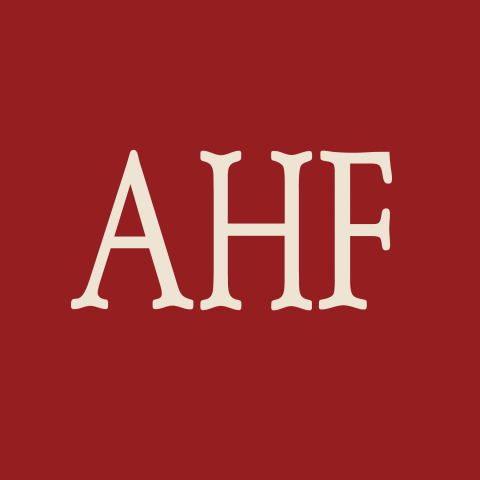AHF: 100% Transparency on COVID-19 Vaccine Trials Is Essential to Public Trust
AHF: 100% Transparency on COVID-19 Vaccine Trials Is Essential to Public Trust
Despite a widely-touted recent joint pledge of prudence and caution on trial safety by 9 drug companies working on COVID-19 vaccines, most—especially Pfizer and AstraZenca—fall far short on transparency
NY Times: “‘Trust is in short supply,’ said Dr. Harlan Krumholz, a cardiologist and health care researcher at Yale University ... , who has spent years prodding companies and academic researchers to share more trial data with outside scientists. ‘And the more that they can share, the better off we are.’”
WASHINGTON--(BUSINESS WIRE)--AIDS Healthcare Foundation (AHF), the largest global AIDS organization, today sharply criticized drug companies working on COVID-19 vaccines over a near total lack of transparency on the companies’ respective trials, including setbacks with AstraZeneca’s vaccine trial that briefly forced its suspension last week as well as Pfizer’s claims Saturday that it could have an answer about whether its vaccine works before the end of October—six weeks from now and mere days before the U.S. presidential election—despite also announcing that it was expanding its vaccine trial to 44,000 people, up from its previous goal of 30,000.
On Saturday, AstraZeneca, a perceived frontrunner in the vaccine race, also announced it was resuming its COVID-19 vaccine trial in the U.K. after abruptly halting it earlier last week after ‘a serious adverse reaction’ occurred in one patient in its Phase 3 study in the U.K. which had only begun in late August.
According to the New York Times, “AstraZeneca did not initially report that a participant’s illness had halted its clinical trials around the world. The studies were paused last Sunday, but not reported until the news was broken by STAT on Tuesday. The company still has not disclosed the patient’s illness that led to the pause, even though it has discussed the medical condition of another participant who developed multiple sclerosis in July, which led to another brief halt of the trial. That illness was determined to be unrelated to the vaccine.”
An unnamed individual familiar with AstraZeneca’s trial told the New York Times that the patient whose serious adverse reaction briefly halted the trial had symptoms “…consistent with inflammation of the spinal cord, known as transverse myelitis. The condition can be treated and is typically resolved in a few months, but severe attacks can cause major disabilities.”
“100% transparency on COVID-19 vaccine trials is essential to public trust,” said AHF President Michael Weinstein. “Despite corporate culture and potential market and/or political pressures falling on their heads, the leaders of these drug companies must be transparent about their vaccine trials. The damage done to the public trust from lack of transparency could be so great and so long-lasting that it could severely affect uptake of an eventual successful COVID vaccine as well as any other vaccines that follow.”
AHF also repeated its call on the global public health community and governments to exercise caution and due diligence in fast-tracking vaccine candidates for prevention of COVID-19.
Since the beginning of the pandemic, COVID-19 has infected 28.9 million people and claimed over 922,000 lives. The devastating effects of the pandemic on all aspects of human activity cannot be overstated. The impact of the virus on public health, the global economy, politics and civic institutions will likely be felt for generations. Amid this crisis, the possibility of an effective vaccine for COVID-19 holds a hopeful promise for a gradual end to the pandemic.
In a typical vaccine development cycle, initial small-scale efficacy and safety trials in animals and humans are usually followed by large-scale, randomized, placebo-controlled clinical trials involving thousands of people over a period of years. This final and most rigorous step is designed to confirm with a high degree of certainty if a vaccine is safe and effective on a population level.
Rushed vaccine development increases the risk of unforeseen negative health outcomes. Setting aside any economic or political reasons governments and private companies might have in being first to develop an effective COVID-19 vaccine, this striving is understandable on humanitarian grounds – millions of people are suffering, and thousands are dying.
Vaccines have saved millions of lives across the world from death, disability, and illness. Smallpox, which typically killed 30% of infected patients, was eradicated in 1980 thanks to an effective vaccine. Polio, a crippling disease primarily affecting children, has been eradicated in many parts of the world as a result of a concerted vaccination campaign spanning decades.
The safety record of vaccines speaks to how well the development and approval process works. There have only been a handful of serious vaccine adverse events in recent history, but they underscore the fact that there are risks associated with vaccines.
AIDS Healthcare Foundation (AHF), the largest global AIDS organization, currently provides medical care and/or services to over 1.4 million people in 45 countries worldwide in the US, Africa, Latin America/Caribbean, the Asia/Pacific Region and Eastern Europe. To learn more about AHF, please visit our website: www.aidshealth.org, find us on Facebook: www.facebook.com/aidshealth and follow us on Twitter: @aidshealthcare and Instagram: @aidshealthcare.
Contacts
U.S. MEDIA CONTACTS:
Ged Kenslea, Senior Director, Communications, AHF
+1.323.308.1833 work
+1.323.791.5526 mobile
gedk@aidshealth.org
Denys Nazarov, Director of Global Policy &
Communications, AHF
+1.202.503.4743
denys.nazarov@ahf.org
